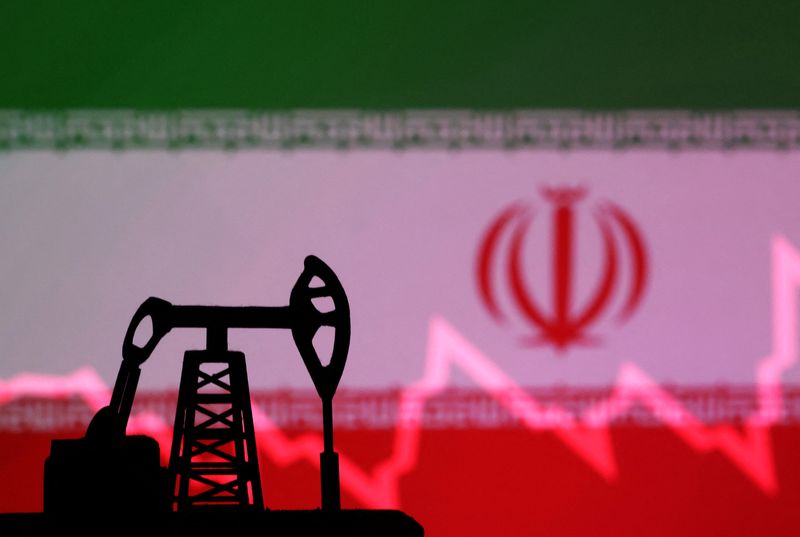By Scott DiSavino
NEW YORK (Reuters) -Oil prices eased less than 1% on Monday as U.S. Federal Reserve officials said they were awaiting more signs that inflation was declining before the central bank starts cutting interest rates.
Two top Fed officials said they're not yet ready to say inflation trends are again moving sustainably back to the central bank's 2% target, weighing in after data last week showed a welcome easing in consumer price pressures in April.
Lower interest rates would reduce borrowing costs for consumers and businesses, which could boost economic growth and demand for oil.
Brent futures fell 27 cents, or 0.3%, to settle at $83.71 a barrel, while U.S. West Texas Intermediate (WTI) crude fell 26 cents, or 0.3%, to settle at $79.80.
That kept the premium of Brent over WTI near its lowest level since March for a third day in a row. A narrower premium makes it less profitable for energy companies to send vessels to the U.S. to pick up crude cargoes for export. That leaves more oil in the U.S. that must be consumed or stored.
The premium of the Brent front-month over the second month, known in the industry as backwardation, fell to its lowest since January.
When a market is in backwardation, energy firms are more likely to pull oil out of storage and use it now rather than wait for prices to decline in the future. If the market switches to contango, with future contracts worth more than the front-month, energy firms could start storing oil for the future, which could depress prices.
UNFAZED BY WORLD EVENTS
The market, however, appeared unfazed by political uncertainty in two major oil-producing countries after Iran's president died in a helicopter crash and Saudi Arabia's crown prince deferred a trip to Japan because of the health of his father, the king.
Iranian oil policy should be unaffected by the president's sudden death because Supreme Leader Ayatollah Ali Khamenei holds ultimate power with the final say on all state matters.
In Saudi Arabia, the market is already accustomed to Crown Prince Mohammed Bin Salman's leadership in the energy sector, said Saul Kavonic, an energy analyst at MST Marquee.
"Continuity in Saudi strategy is expected regardless of this health issue," he said.
The Organization of the Petroleum Exporting Countries and its allies, together known as OPEC+, are scheduled to meet on June 1.
"The market also appears increasingly numb to developments on the geopolitical front, likely due to the large amount of spare capacity OPEC is sitting on," said Warren Patterson, head of commodities strategy at ING.
Data showed that Saudi Arabia's crude oil exports rose for a second consecutive month in March, reaching their highest in nine months.
Russia remained China's top oil supplier in April for a 12th month, with volumes rising 30% from a year earlier as refiners continued to cash in discounted shipments, while supplies from Saudi Arabia fell a quarter on higher prices.

Russian President Vladimir Putin said gas output rose by 8% in the first four months of the year but oil output declined by 1.8%, a dip largely due to production cuts under OPEC+ agreements.
Even though the Slavyansk oil refinery in the Krasnodar region of Russia was damaged by a drone attack over the weekend, Russia said it suspended a ban on gasoline exports until June 30. The country, however, said it would put the ban back in place July 1 to Aug. 31.